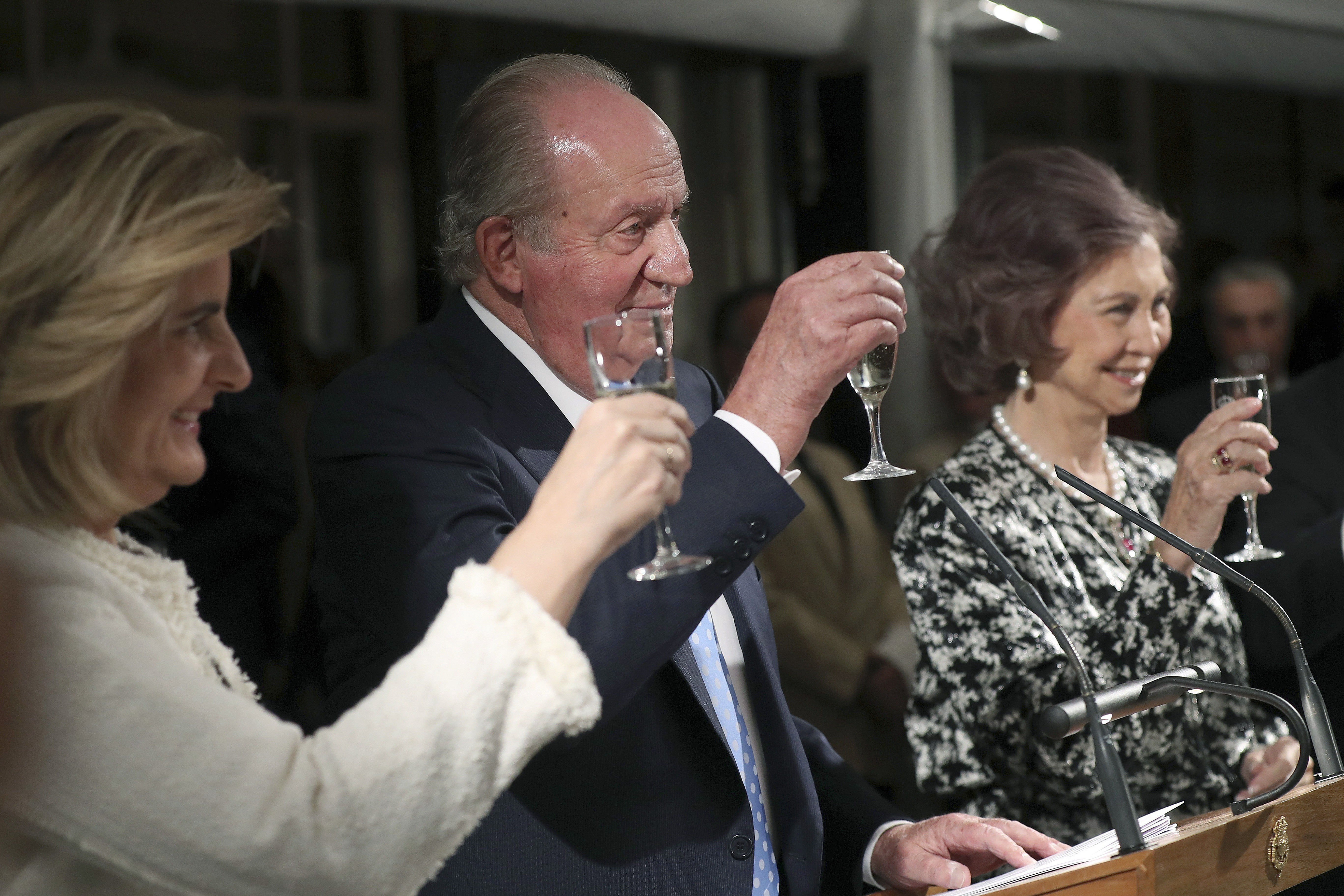Today, 5th January, is the 80th birthday of former Spanish king Juan Carlos I. The monarch, one of the leading figures of Spain's transition to democracy following Francisco Franco's dictatorship, led the crown to its greatest social standing in the first years of his reign. Nonetheless, his stature was seriously weakened in recent years as head of state, leading to him standing aside and passing the throne to his son, Felipe, in June 2014.
From links to Franco to the Nóos corruption scandal, the monarchy under Juan Carlos has seen a string of controversies which have led to it becoming one of the least respected institutions in Spain. This is a summary of a reign which saw not one, but many infamous moments.
1970: "Great affection" for Franco
Juan Carlos I's accession to become Spain's head of state following the Franco regime has always been one of the most hotly-debated moments of his life. As part of his nomination he swore loyalty to the principles of the dictatorship. Meanwhile, in 1970, the king made comments on Swiss public TV praising the dictator (video in French with Spanish subtitles).
In the middle of the decline of a dictatorship already in its last years, Juan Carlos said that Franco "saved Spain from the 1936 crisis". 1936 saw the start of the Spanish Civil War following a coup, the war eventually leading to the dictatorship. He also said that Franco had "laid the foundations for development" and that he saw him as an "example".
2007: "Why don't you shut up?"
The 2007 Ibero-American Summit had a clear protagonist: Juan Carlos I. As the then prime minister, José Luis Rodríguez Zapatero of PSOE, was speaking, then president of Venezuela, Hugo Chávez, constantly interrupted him, criticising Zapatero's predecessor, José María Aznar of PP, for his reaction to the 2002 coup d'état against Chávez's government.
Chávez's impertinence drew a spontaneous response from the king, who didn't hesitate in ordering the Venezuelan head of state to be quiet with his now-famous, "¿Por qué no te callas?" (why don't you shut up?). Chávez did lower his tone and stop interrupting Zapatero, who rejected the Venezuelan president's comments. Some minutes later, the king again caused a scene, leaving the summit in disagreement as the president of Nicaragua was speaking.
2011-14: Nóos Affair
The end of 2011 saw one of the events which most marked the royal family's image and weakened Juan Carlos's reign. One of the king's sons-in-law, the husband of Infanta Cristina, Iñaki Urdangarin, was charged alongside one of his colleagues in a branch of the Palma Arena affair. Initially, the princess wasn't charged despite being co-owner of a business implicated in the case.
Later, Cristina was charged for money-laundering and financial crimes, testifying in court in 2014 over her alleged involvement. In her testimony she claimed to know nothing of the corruption plot: a total of 579 times she said variations on "I don't remember" and "I don't know" to the judge. The scene of the sixth-in-line to the throne in court damaged the royal family's image in the year Juan Carlos I ceded the throne to his son, Felipe.
2012: An undeclared inheritance
Five years later, in 2012, another scandal hit the royal family. International media published details of their incredible hidden fortune, which The New York Times valued at 1.8 billion euros (£1.6 billion, $2.2 billion). The opacity of the accounts was followed by another revelation short months later: Juan Carlos had received an inheritance of more than two million euros (£1.8 million, $2.4 million) from his father, Juan de Borbón) which he didn't declare.
The inheritance he received in 1993 was formed of three accounts containing 7,955,775 Swiss francs, then equivalent to more than 700 million pesetas (£3,600,000, $5,400,000 at 1993 exchange rates). The money was held in a number of overseas accounts and split between Juan Carlos I and his two sisters, Pilar and Margarita de Borbón.
2012: "I'm very sorry, it won't happen again"
45,000 euros (£40,000, $54,000). That's what it cost the former king to go on a safari to hunt and kill elephants, animals in danger of extinction. The ensuing controversy included strong criticism from animal rights activists and scandal over the cost of the holiday, quickly linked with the cost of maintaining the royal family.
One of the most famous moments of the saga was the monarch's statement from hospital after being treated for a broken hip he had injured during the same trip. "I'm very sorry, I've made a mistake. It won't happen again", he said.
2016: Pilar de Borbón in the Panama papers
Juan Carlos's undeclared inheritance wasn't the royal family's only financial scandal. In 2016, the Tax Agency opened an investigation into Pilar de Borbón after the release of the Panama papers, the confidential documents leaked from the offices of Panamanian law firm Mossack Fonseca.
Juan Carlos's eldest sister is the alleged owner of a company headquartered in Panama called Delantera Financiera SA, a company which was active from 1974 to 24th June 2014, five days after Juan Carlos's abdication.

